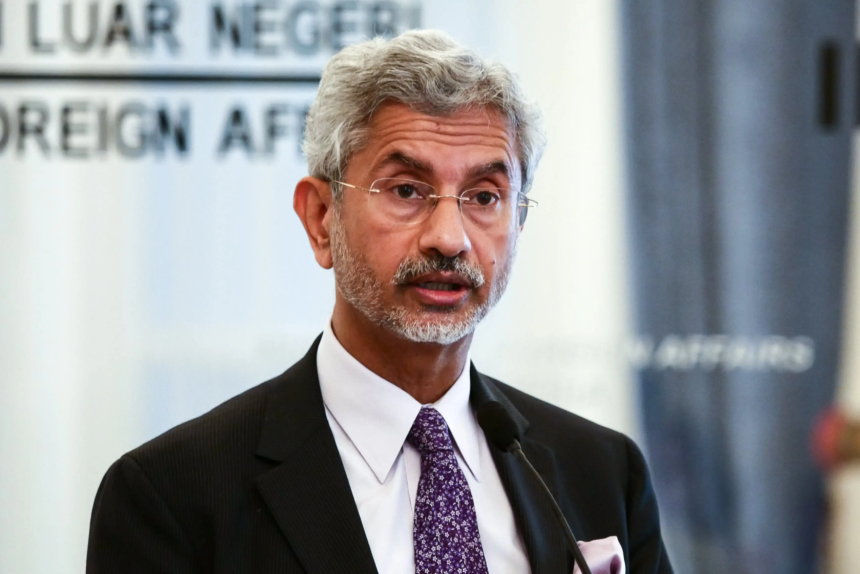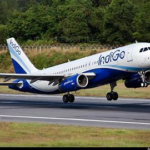
Subtitle: Indo-Pacific Engagement Vital in Enhancing EU’s Appeal and Promoting Multi-Polarit
In a recent address at the EU-India Pacific Ministerial Forum, Indian External Affairs Minister S. Jaishankar shared his thoughts on the Indo-Pacific region and emphasised the significance of a multipolar Asia in realising a multipolar world. Mr. Jaishankar’s remarks shed light on the complex and differentiated landscape of the Indo-Pacific and highlighted the importance of deeper engagement between the European Union (EU) and the Indo-Pacific region.
Speaking at the forum, Mr. Jaishankar emphasised that the Indo-Pacific region is a dynamic and multifaceted space that requires a more intensive and comprehensive approach to understanding its complexities. He suggested that a generous and strategic approach, considering economic asymmetries, would strengthen the EU’s appeal in the region. By actively engaging with the Indo-Pacific, both the EU and the region itself would gain a deeper appreciation for the concept of multi-polarity.
According to Mr. Jaishankar, the achievement of a multipolar world, which the EU favours, can only be feasible through the establishment of a multipolar Asia. This statement reflects the growing recognition of Asia’s increasing global influence and the need for diverse power centres to ensure a balanced and stable international order.
In recent years, Asia has witnessed significant economic growth and geopolitical transformations, making it a critical region in shaping the global landscape. As the Indo-Pacific region becomes increasingly interconnected, diverse, and influential, its role in international affairs becomes more prominent. Mr. Jaishankar’s remarks underscore the importance of acknowledging and actively engaging with the emerging power dynamics in Asia.
The Indian External Affairs Minister’s emphasis on intensifying cooperation and engagement between the EU and the Indo-Pacific region demonstrates the potential for mutual benefits. By fostering stronger ties, both sides can leverage each other’s strengths and contribute to a more multi-polar world order.
He said that the EU has major stakes in Indo-Pacific developments, especially concerning technology, connectivity, trade and finance. Jaishankar dealt with globalisation and established thinking at the forum.
“Globalization is the overwhelming reality of our times. However, far apart, regions and nations cannot be impervious to significant events elsewhere. Nor can we cherry-pick them to our convenience. The European Union has major stakes in Indo-Pacific developments, especially as they pertain to technology, connectivity, trade and finance. It has to, in respect for, and observance of UNCLOS. Agnosticism on such matters is therefore no longer an option,” he said
Mr Jaishankar said that established thinking is being tested by the outcomes of the last two decades.
“How to respond to non-market economics is proving to be a formidable challenge than most expected. The compulsions of the immediate are often in contradiction with the concerns of the medium-term. Therefore, conventional templates must give way to new thinking better suited to emerging realities,” said Mr Jaishankar.
Moreover, Mr. Jaishankar’s call for a multipolar Asia aligns with India’s long-standing foreign policy of advocating for a more balanced and equitable international system. India, as a key player in the Indo-Pacific region, has been actively promoting the concept of inclusivity, cooperation, and respect for sovereignty.
The EU, recognizing the importance of the Indo-Pacific in its own strategic interests, has been actively engaging with regional stakeholders, including India. As the EU and the Indo-Pacific deepen their cooperation, a deeper understanding of the complexities and interdependencies of the region will emerge. This understanding will further reinforce the EU’s commitment to a multipolar world and encourage the development of more balanced power dynamics.
In conclusion, S. Jaishankar’s remarks at the EU-India Pacific Ministerial Forum highlighted the need for a multipolar Asia to achieve a multipolar world. The Indo-Pacific region’s complexities require more intensive engagement, and a generous and strategic approach by the EU would enhance its appeal in the region. By actively dealing with each other, both the EU and the Indo-Pacific can gain a greater appreciation for multi-polarity. As Asia continues to rise in prominence, acknowledging its multipolar nature is essential for building a balanced and stable international order.






